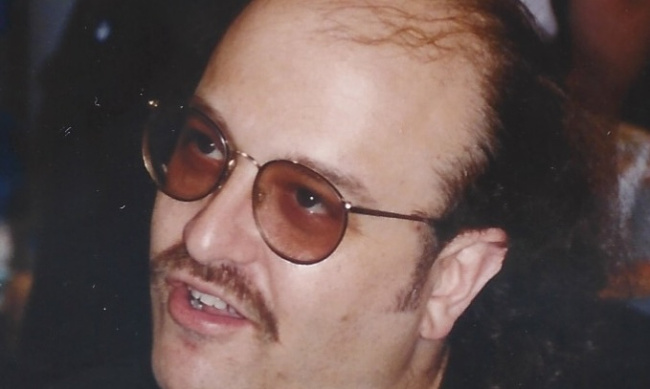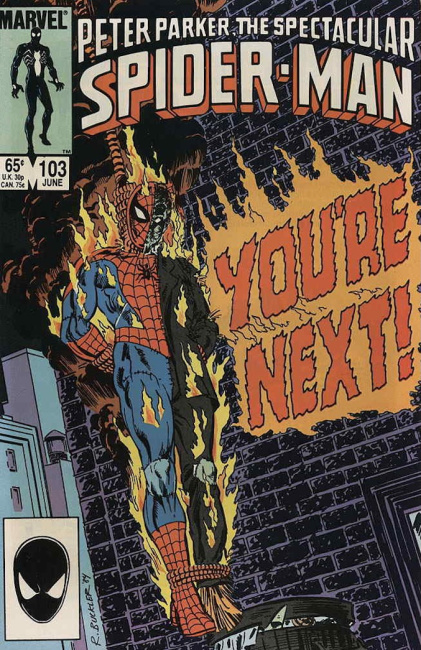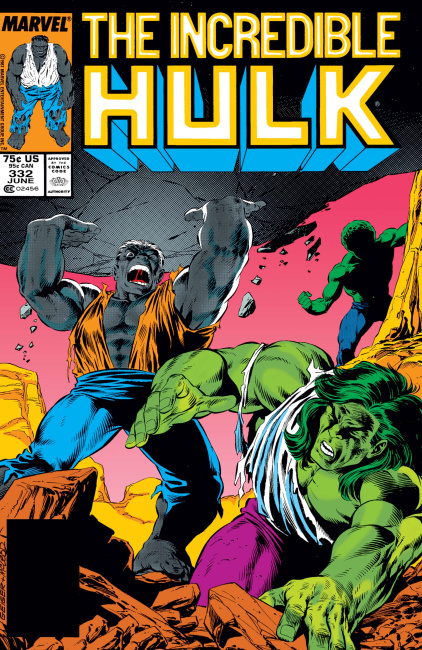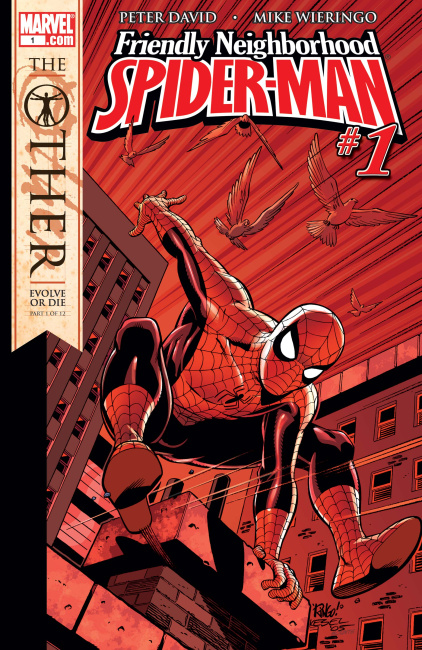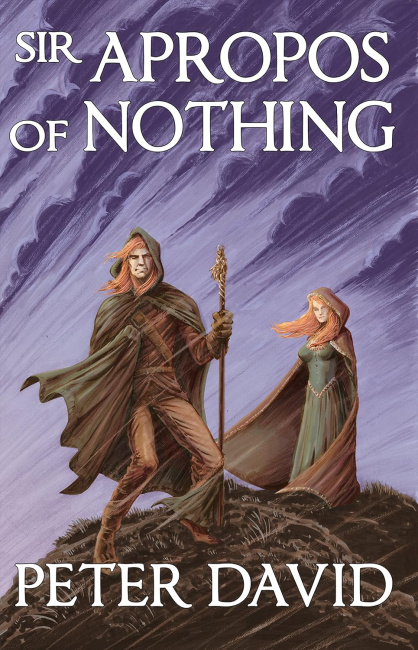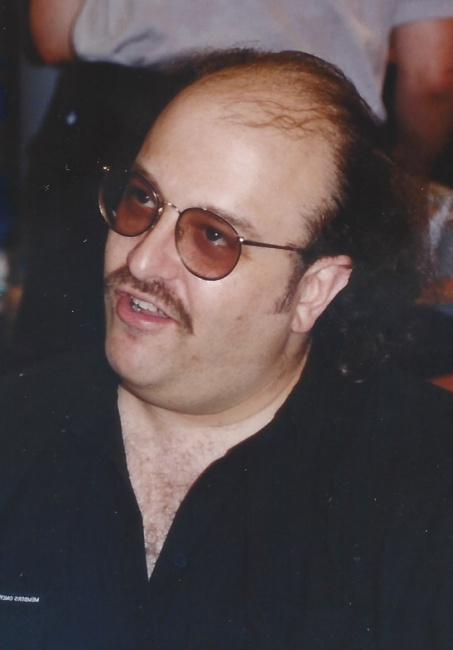
Image: ICv2
At San Diego Comic-Con, 1992
Peter David, a prolific comics writer whose work on
The Incredible Hulk. Aquaman, and other comics helped redefine the characters and became fan favorites, died on May 24, 2025, at the age of 68.
“Peter’s departure from this mortal coil is a loss to the art form and humanity,” said ICv2 CEO Milton Griepp. “Peter was not only a very talented writer, his background in direct market sales and marketing meant he understood what brought in readers better than most artists. He was also passionate about supporting the medium, and served on the board of the Comic Book Legal Defense Fund for years. He was routinely pleasant and thoughtful in his interactions, creating a large body of people to whom he and his work meant a lot.”
David was born in Fort Meade, MD, on September 13, 1956, and grew up in New Jersey and Pennsylvania. His mother, Dalia, had worked with DNA researchers James Watson and Francis Crick. His father, Gunter, was a reporter who had emigrated to the U.S. from Germany as a child in the 1930s.
Like many children of the 1950s, David started reading comics at an early age, having discovered the Harvey comics at his regular barbershop. His parents did not approve of superhero comics, however, so he read them on the sly until they changed their minds. As a teenager, he persuaded his father to take him to one of Phil Seuling’s comic shows in New York, where he met Jack Kirby. His initial ambition, however, was to be a reporter like his father, and he earned a bachelor’s degree in journalism from New York University. Although he covered the 1974 World Science Fiction Convention (WorldCon) for the Philadelphia Bulletin, he soon left journalism for fiction, and in 1980 Asimov’s Science Fiction published his first story.
It was journalism that led to his comics career, however: In 1982, he interviewed Carol Kalish, then Marvel’s Sales Manager, for an article about the Direct Market in
Comic Scene magazine. They hit it off, she told him she had an opening for an assistant, and a week later, she hired him. David worked in Marvel’s Direct Sales department for five years, first as Kalish’s assistant and then as Sales Manager. “I was involved in the distribution of comic books out to comic book shops,” he explained in a 2002 interview with
The Trades. “At that time, we dealt with about seventeen different distributors. This was back in the days before there was, you know... one.” He was writing on the side, and his first novel,
Knight Life, was published by Ace in 1987.
David was also pitching comics stories to Marvel, but at the time, the publisher frowned on letting people from the sales department write comics. He got his big break in 1985 when editor Jim Owsley (Christopher Priest) accepted his pitch for a Spider-Man story, which ran in
Spectacular Spider-Man #103, published in June 1985. David followed that up a few months later with “The Death of Jean DeWolff,” which ran in
Spectacular Spider-Man #107-110, and his career was launched. In 1987 he began what would become a 12-year run on
The Incredible Hulk. During his time on the series, David brought new psychological depth to the character and expanded the cast. After his first year on the series, with new work coming in as well, David left the Marvel sales office to write full time.
In 1990, David wrote the seven-issue series The Atlantis Chronicles, which laid out the history of DC’s undersea realm, and in 1994 he returned to write the four-issue miniseries Aquaman: Time and Tide. When DC relaunched the Aquamanongoing series, David wrote the first 46 issues. This was another series in which he added new depth to the character, and in the second issue, he had Aquaman lose a hand, which was then replaced by a harpoon.
David also wrote the Star Trek comic from 1988 to 1991, when it was being published by DC, and later on he wrote numerous Star Trek novels as well.
In 1992, David and artist Rick Leonardi created Spider-Man 2099 as part of the Marvel 2099 line, and David wrote issues #1-44 of that series, returning to it later on; Marvel published David’s most recent miniseries in 2024 (see “Peter David Returns”).
There was more. In 1996, David collaborated with writer Ron Marz for the
DC vs. Marvel intercompany crossover; Marz wrote the first and third issues, and David the second and fourth. He also wrote the first 23 issues of
Friendly Neighborhood Spider-Man, the first four issues of which were part of a 12-issue crossover with J. Michael Straczynski’s
The Amazing Spider-Man and Reginald Hudlin’s
Marvel Knights Spider-Man. He had significant runs on
X-Factor, She-Hulk, and
Captain Marvel for Marvel,
Supergirl and
Young Justice for DC,
Spyboy for Dark Horse, and
Dreadstar for First Comics. He also wrote a number of creator-owned series, including
Soulsearchers and Company(Claypool Comics),
Sachs and Violens (co-created with artist George Pérez and published by Marvel’s Icon line), and
Fallen Angel (published by DC and later by IDW). He cast his net beyond superhero comics, though; he wrote a Ben 10 graphic novel and a Powerpuff Girls one-shot,
Red Sonja vs. Thulsa Doom for Dynamite, and Spike and Teenage Mutant Ninja Turtles titles for IDW. He and his wife Kathleen did the English-language rewrite for the first four volumes of the manga
Negima when it was first released by Del Rey in 2003.
David was also a prolific novelist, with an oeuvre that included his own fanciful creation Sir Apropos of Nothing as well as Tigerheart, his own take on Peter Pan, and his Modern Arthur series. He wrote numerous novelizations of television series, including
Babylon 5 and
Star Trek, as well as movies, including
The Rocketeer, Batman Forever, three Spider-Man films, and
Transformers: Dark of the Moon. His screenwriting work includes the Nickelodeon series Space Cases (which he co-created), two episodes of
Babylon 5, the
Young Justice animated TV series, and several episodes of
Ben 10 and the spinoff
Ben 10: Ultimate Alien. He also wrote and co-produced the films
Trancers 4, Trancers 5, Oblivion,and
Oblivion 2: Backlash.
In addition to his fiction, David wrote a regular column, “But I Digress,” for Comics Buyer’s Guide, and some of the columns were collected into a book by the same name published by Krause Publications in 1994; a second volume, More Digressions, was published by Mad Norwegian Press in 2009. He also started blogging in 2002 and was an influential member of the comics blogosphere for many years. In 2006, Impact Books published his Writing for Comics with Peter David, and in 2020, McFarland published his memoir Mr. Sulu Grabbed My Ass, and Other Highlights from a Life in Comics, Novels, Television, Films and Video Games.
David won the 1992 Eisner Award for Best Writer/Artist Team, shared with artist Dale Keown, for The Incredible Hulk,and in 2016 Comic-Con International gave him their Inkpot Award. His 2011 run on X-Factor earned him the GLAAD Media Award for Outstanding Comic Book.



